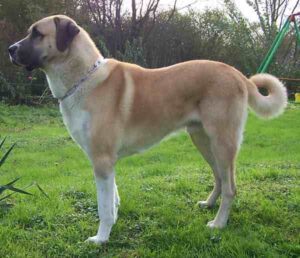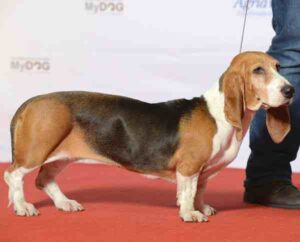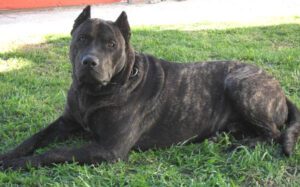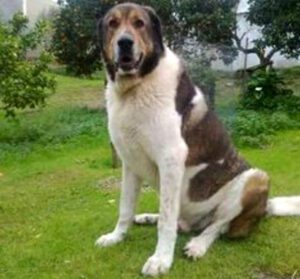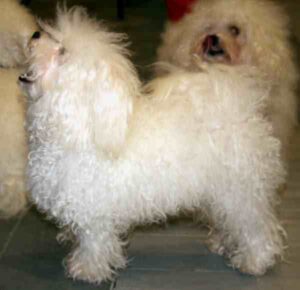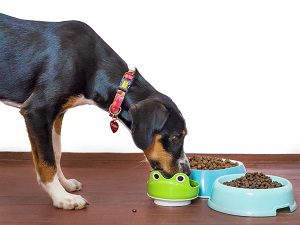The Canaan dog is a breed of pariah dog from the Middle East. It is a medium sized breed and is very beautiful. It is also known by some other names. It’s other names are Bedouin Sheepdog and Palestinian Pariah Dog.
The Canaan dog breed is found in Israel, Jordan, Lebanon, the Sinai peninsula, and these or dogs very similar are found in Egypt, Iraq, and Syria. Today, there are 2,000 to 3,000 Canaan dogs across the world, mostly in Europe and North America.
Since time immemorial, the Bedouins have used this dog for guarding their herds and camps. According to tradition, at the time of the Diaspora the Israelites were forcefully removed from their land and had to leave behind their dogs, which reverted to the wild.
Excavations in Israel unearthed the Ashkelon dog cemetery, the largest known animal cemetery in the ancient world, containing 700 dog skeletons all of which were anatomically similar to the Canaan dog of modern times. The cemetery dates back to the time of occupation by the Persian Empire and archaeologists hypothesize that the dogs were revered as sacred animals.
Dr. Rudolphina Menzel used these intelligent scavenger-dogs mainly found in the desert as guard dogs. Menzel was asked by the Haganah to build up a service dog organization in the 1930s. She captured a select group of semi-wild individuals, tamed, trained and bred them.
Menzel found the dogs highly adaptable, trainable, and easy to domesticate. It took her about six months to capture her first dog, Dugma, and within a few weeks she was able to take him into town and on buses. She began a breeding program in 1934, providing working dogs for the military and she gave pups to be pets and home guard dogs. She initiated a selective breeding program to produce the breed known today as the Canaan dog.
Menzel founded The Institute for Orientation and Mobility of the Blind in 1949, and in 1953, she started to train Canaan dogs as guide dogs for the blind.
She found that the breed was too independent and too small for general guide dog use, although some of her dogs were used successfully by children. Although, she was able to train several dogs.
Her breeding program was concentrated with the Institute, where a foundation of kennel-raised Canaan dogs was established, carrying the name “B’nei Habitachon”. In addition, a controlled collection of dogs of the original type was continued, primarily from the Bedouin of the Negev. She later supplied breeding stock to Shaar Hagai Kennels which continued in the breeding of the Canaan dog.
Shaar Hagai Kennels, managed by Dvora Ben Shaul and Myrna Shiboleth, continued the breeding program according to her instructions after her death in 1973.
Collection of wild Canaan dogs has become very difficult. Many of the Canaan dogs living in the open were destroyed by the Israeli government in the fight against rabies. The spread of the human population into areas that were formerly isolated, along with their pet dogs, has resulted in the loss of the natural habitat of the Canaan.
Even the majority of Bedouin dogs today, other than those of tribes still living a traditional and isolated life style, are mixed with other breeds. Myrna Shiboleth visits the Negev regularly, looking for good specimens living by the Bedouin camps, that she can breed with her dogs and use to strengthen the gene pool.[1]
Canaan Dog Characteristics
The Canaan dogs are medium in size, very beautiful and is a typical primitive dog in appearance. It is a square built dog, with a wedge-shaped head, erect and low set ears with a broad base and rounded tips.
Their undercoat should be close and profuse according to season. But the outer coat is dense, harsh and straight of short to medium-length.
Color of the Canaan dogs ranges from black to cream and all shades of brown and red between, usually with small white markings, or all white with color patches. Spotting of all kinds is permitted as well as white or black masks.
Average body height of the mature Canaan dogs is between 20 and 24 inches at the withers for males and between 18 and 20 inches for the females. And average live body weight of the mature dogs is between 18 and 25 kg.
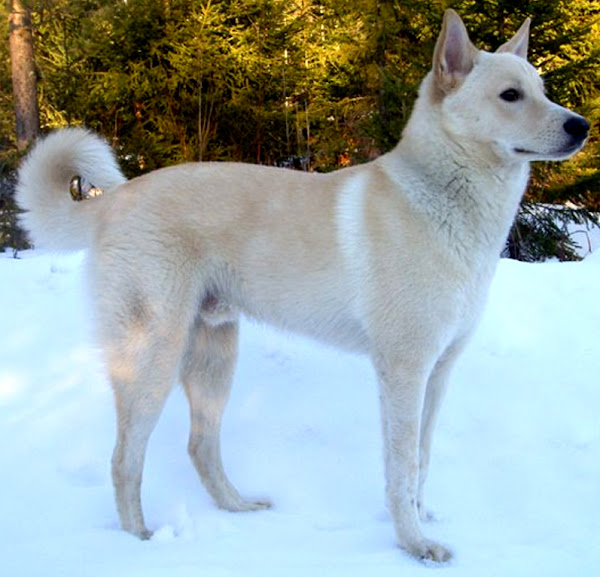
Temperament
The Canaan dog is described as alert, vigilant, devoted and docile with it’s family. But the breed is aloof towards strangers, although it should never be shy or aggressive, and highly territorial.
Territoriality of this dog, which kicks in at about age 2, makes the Canaan a good alarm dog. It is sure to bark whenever anyone comes to the door, settling back down once it is certain you have the situation under control.
The Canaan dog breed requires extensive socialization. Exposure to many different people, places, sights, sounds and experiences are important. A dog who has been exposed to a variety of people and situations while young will be less stressed and less likely to overreact when confronted with something new as an adult.
Although, temperament of the Canaan dog is affected by a number of factors, including heredity, training, and socialization. Puppies with nice temperament are curious and playful, willing to approach people and be held by them.
Lifespan
Average lifespan of the Canaan dog is between 12 and 15 years.
Feeding
How much a mature dog eats depends on it’s size, age, build, metabolism and activity level. Dogs are individuals, just like people, and they don’t all need the same amount of food.
The Canaan dogs are medium in size and are moderately active. So, their diet should be formulated for a medium-sized breed with moderate exercise needs. Generally 1.5 to 2.5 cups of high quality dry food per day will be enough for a mature dog. You can also consult with a vet in your area for better recommendations.
Caring
Taking good care of the animals is very important for raising Canaan dogs. Dense undercoat of these dogs allows them to spend time outdoors in all kinds of weather. But it should be a housedog, when it’s people are home.
These dogs require a securely fenced yard to protect it from traffic and from altercations with other dogs. With a consistent schedule, it is easy to housetrain.
The Canaan dogs love go dig and can make quite large excavations in a short period if left to their own devices. Provide them with a digging area they can call their own or redirect the digging tendency with other activities.
Generally, the Canaan dogs don’t require extensive exercise. It is usually satisfied with a couple of short walks a day or a walk plus some vigorous playtime in the backyard.
Health
The Canaan dogs are generally healthy. But like all other dog breeds, they are also prone to certain health conditions.
Their common health problems include hip dysplasia, elbow dysplasia, hypothyroidism and von Willebrand’s disease. Always try to keep good contact with a vet in your area.
| Breed Name | Canaan |
| Other Names | Also known by some other names such as Bedouin Sheepdog and Palestinian Pariah Dog |
| Breed Size | Medium |
| Height | Between 20 and 24 inches at the withers for males and between 18 and 20 inches for the females |
| Weight | Between 18 and 25 kg |
| Good as pets | Yes |
| Climate Tolerance | All climates |
| Color | Ranges from black to cream and all shades of brown and red between, usually with small white markings, or all white with color patches. Spotting of all kinds is permitted as well as white or black masks |
| Lifespan | Between 12 and 15 years |
| Good for children | Yes |
| Rarity | Common |
| Country of Origin | Middle East |

